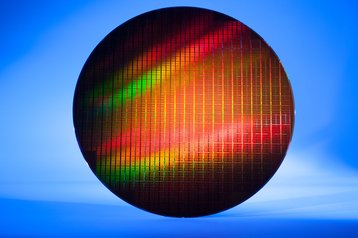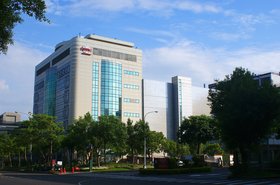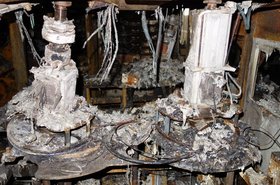A group of Senators have put forward a bill that would give investment tax credits to US semiconductor manufacturers.
The bipartisan Facilitating American-Built Semiconductors (FABS) Act comes after the Senate passed the US Innovation and Competition Act (USICA), which would pump $52 billion into domestic chip manufacturing, as part of a wider $250bn spending drive.
Introduced by Sens. Ron Wyden (D-Ore.) and Mike Crapo (R-Idaho), the Chair and Ranking Member of the Senate Finance Committee, the FABS Act was cosponsored by Sens. Cornyn, Warner, Daines, and Stabenow.
The legislation would create a 25 percent investment tax credit for investments in semiconductor manufacturing - either for equipment or the fabs themselves.
“Helping American semiconductor manufacturers strengthen their supply chains to better protect critical technologies is a longstanding bipartisan effort,” said Crapo.
“Senators Cornyn and Warner have been strong leaders in the fight to stimulate domestic advanced chip manufacturing, and their partnership is instrumental in this effort. Leveraging federal government incentives to bolster American companies and bring chip and semiconductor manufacturing back to the United States is critical. This tax incentive is a great step toward our goal of fortifying our supply chains, strengthening national security, and boosting economic competitiveness.”
Micron Technology, based out of Crapo's state of Idaho, welcomed the news. "These continued investments in America’s future would further enhance our nation’s competitiveness on a global scale, accelerate innovation, and bolster technology leadership and economic growth in the U.S."
Also unsurprisingly backing the bill was the newly-formed Semiconductor Industry Association.
"We call on Congress to promptly pass this legislation, along with funding for the semiconductor manufacturing and research provisions of the CHIPS Act," SIA Chair Bob Bruggeworth said. CHIPS was authorized as part of the National Defense Authorization Act, but funding has yet to be allocated.
The $52bn under the USICA act could still change as it faces Congress. While it was still being debated by the Senate, Bernie Sanders tried to change it so that the government would get an equity stake in return for its investment, but that fell through.
Should USICA's $52bn spending spree pass, US Commerce Secretary Gina Raimondo has claimed that it will lead to 7-10 new semiconductor fabs in the US. Over the past two decades, the country has gone from developing 37 percent of the world's chips to just 12 percent.



